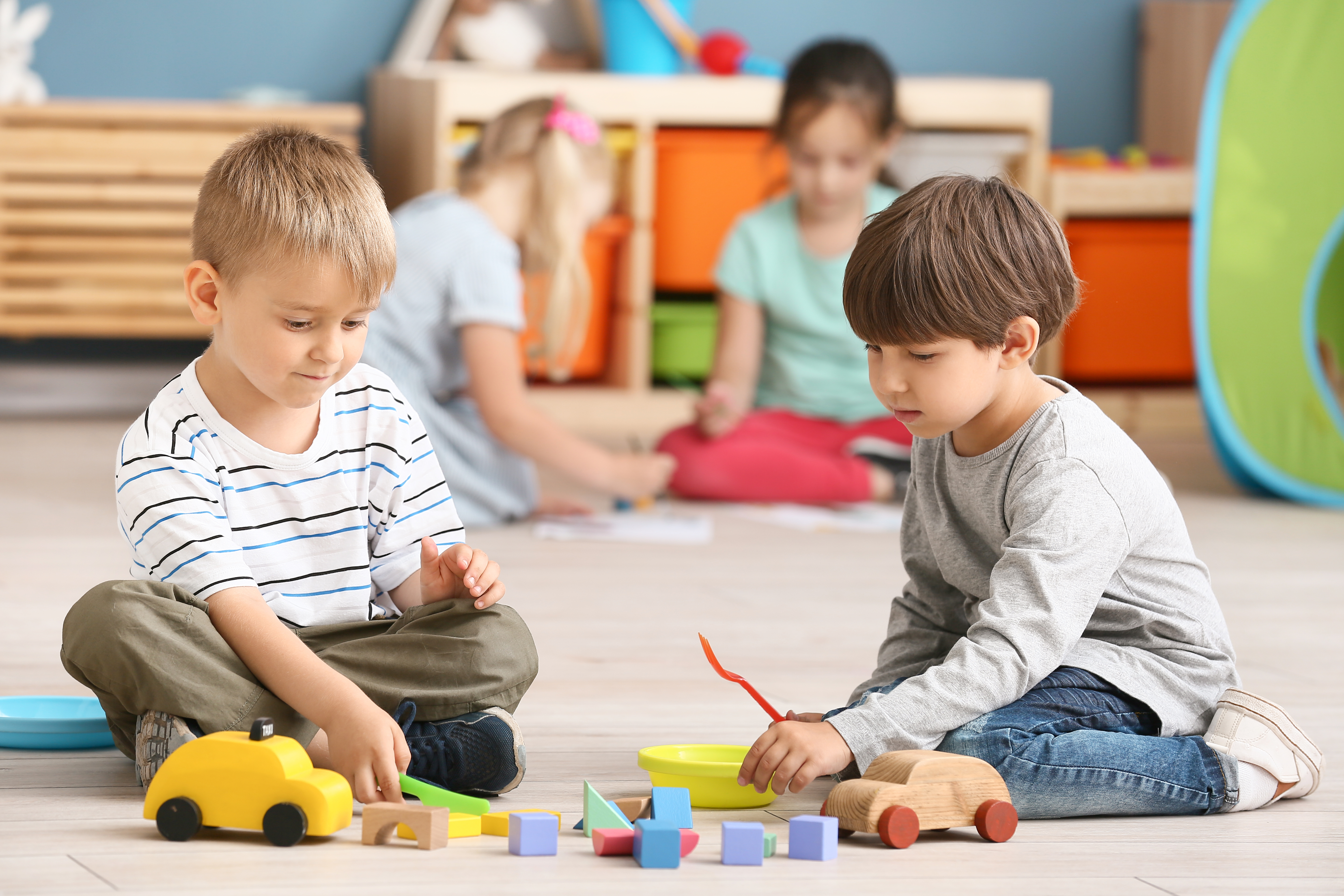Up until now, you’ve probably been arranging playdates for your child and having a say in who they socialize with. But once your child starts preschool and begins to forge relationships with kids of their own choosing, it’s a parent’s job to help them develop those friendships and show them how to navigate social situations in the classroom and beyond.
The Benefits of Starting Early
Learning how to be a good friend is something that is mastered over time, but the foundation can be laid out at a young age. “The social skills we build in preschool last a lifetime,” says Caroline Maguire, parenting coach and author of Why will No One Play with Me?: The Play Better Plan to Help Children of All Ages Make Friends and Thrive. “Think of child’s play as a way to build their social toolbox.” Preschoolers at play are able to put basic social skills into practice, such as learning how to spot a conflict and figuring out ways to communicate and reach a compromise.
The benefits of learning to socialize at a young age include developing self-esteem, empathy and kindness—traits that can last well into adulthood. “Children can learn acceptable behavior and build up their social confidence,” says Christine Kyriakakos Martin, early education expert and author of You’ve Got This! Keys to Effective Parenting for the Early Years. “That’s something parents can help cultivate.”
Parental Coaching—Now and Later
At one time or another, every parent has experienced a child that has come from daycare or preschool in tears. Whether it was a fight over a toy or whose turn was next for the swings, preschoolers will eventually encounter a conflict among their peers—and it most likely won’t be their last. Rather than immediately calling the teacher to resolve the problem, parents can demonstrate ways for their child to handle potential problems as they arise.
For starters, Maguire suggests asking how it made them feel to have their toy taken away. “Parents can model this conflict and emotional management by prompting a child to use calming strategies and by problem-solving conflict during play or within the family,” she offers. For instance, at a later date, asking a child to help choose a movie to watch together as a family may encourage him to consider his younger sibling’s interests and make a fair compromise.
Role-play can also be effective when helping a child that is inherently shy and reluctant to join in during group settings. Siblings, grandparents or other family members can serve as stand-ins when acting out how to communicate with a child’s peers. But, as Martin points out, try to let a child respond to social situations on their own terms. “Don’t push a child to interact immediately,” she says. “Let them take that first step; parents need to provide support.”
Of course, by the time a child reaches the later elementary school years, parents will have less of a role in organizing playdates. Until then, experts believe that mom and dad can help lay the groundwork by taking a step back and letting kids advocate for themselves. “The more self-reliant and independent children are, the more likely they are to possess the skills necessary to initiate their own social contacts in the future,” says Maguire.




